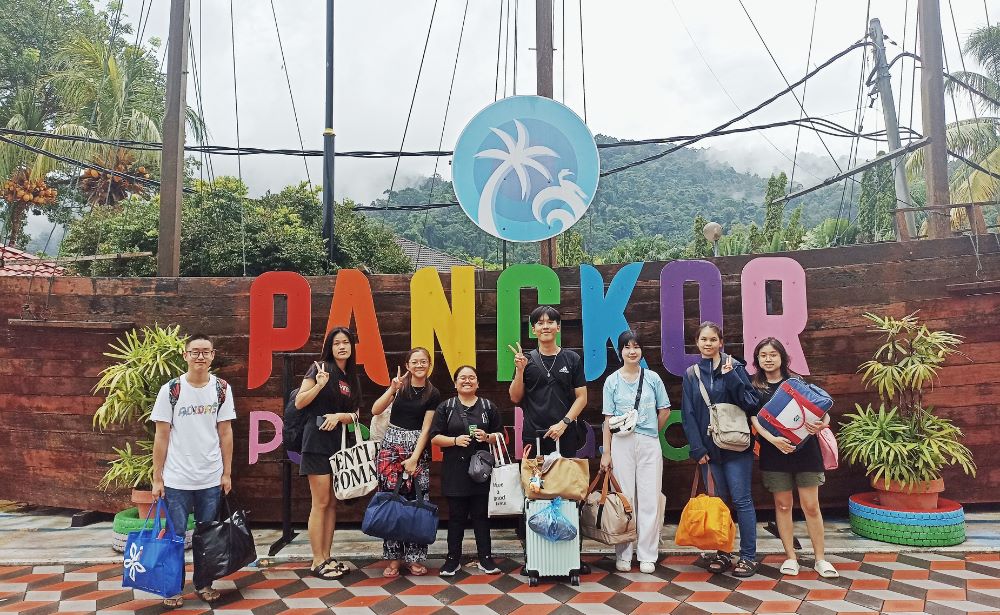SEGi College Penang has once again demonstrated its commitment to excellence and sustainable development through a recent educational trip undertaken by students of the University of Sunderland’s Bachelor of Science in International Tourism and Hospitality Management programme.
The visit to Pangkor Island provided an invaluable opportunity for students to gain practical insights into the intricacies of tourism dynamics, hospitality standards, and cultural heritage. This initiative aligns perfectly with the United Nations’ Sustainable Development Goals (SDGs), particularly SDG 4 (Quality Education), SDG 8 (Decent Work and Economic Growth), and SDG 11 (Sustainable Cities and Communities).
During their visit, students explored the island’s vibrant coral reefs and diverse marine life, which underscored the importance of sustainable tourism practices and eco-friendly tourism management. By engaging in hands-on activities, students were able to witness firsthand the delicate balance between tourism and environmental conservation, echoing the principles of SDG 14 (Life Below Water). This immersive experience reinforced the critical need for sustainable marine tourism, emphasizing conservation efforts that protect these valuable ecosystems.
The trip also included a tour of the island’s main mosque, where students gained insights into local religious practices and the role of cultural tourism in promoting and respecting cultural heritage. This aspect of their visit highlighted the significance of SDG 16 (Peace, Justice, and Strong Institutions), promoting inclusivity and understanding through respectful engagement with diverse cultural traditions. The students’ experiences at the mosque underscored the importance of fostering intercultural dialogue and mutual respect in the tourism industry.
Further enhancing their educational journey, the students visited the 17th-century Dutch Fort on Pangkor Island. This historical site provided a rich context for understanding the preservation of heritage sites and their integral role in tourism. The fort’s historical significance illuminated the importance of protecting and celebrating cultural heritage, aligning with SDG 11 (Sustainable Cities and Communities) by fostering an appreciation for historical landmarks and their contributions to sustainable tourism.
These comprehensive field visits offered SEGi students unparalleled educational experiences, broadening their perspectives on marine conservation, cultural and religious tourism, and heritage tourism. By integrating practical learning with sustainable practices, SEGi University & Colleges ensures that its students are not only well-prepared for the tourism and hospitality industry but also conscientious global citizens committed to sustainable development.
SEGi’s dedication to providing quality education that integrates sustainability is evident in these initiatives. By embedding the principles of the UN’s SDGs into their curriculum, SEGi University & Colleges is paving the way for a new generation of industry leaders who are equipped with the knowledge and skills to drive sustainable practices in tourism and hospitality. This commitment to excellence and sustainability solidifies SEGi’s position as a leader in higher education, making it an institution of choice for students who aspire to make a positive impact on the world.

